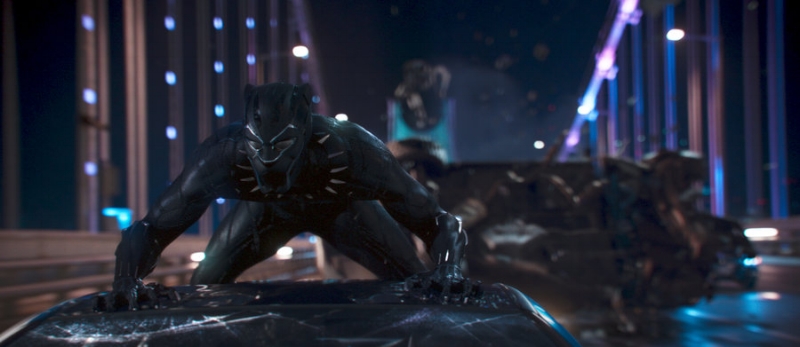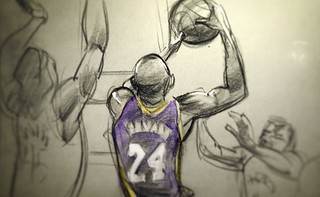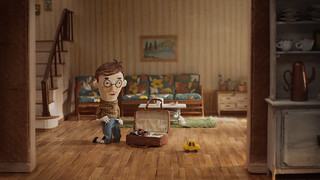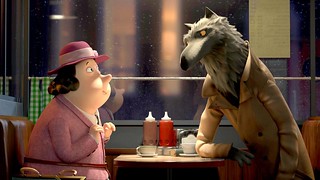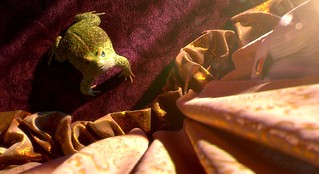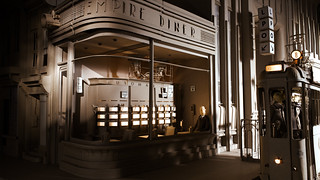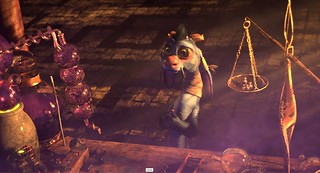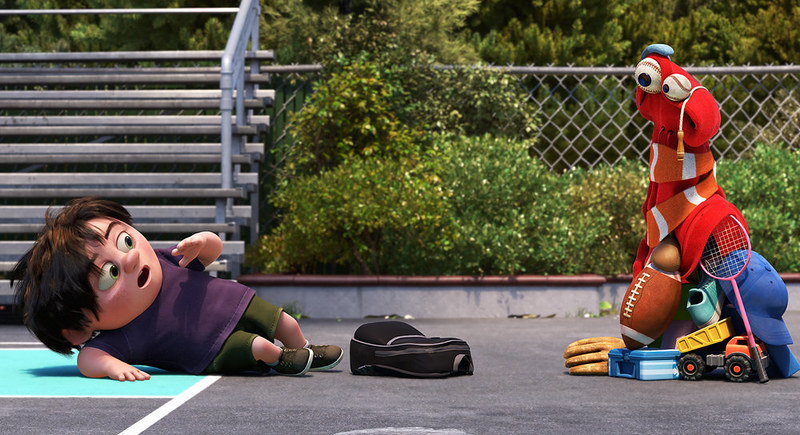FACES PLACES
Directing: B+
Writing: B+
Cinematography: B+
Editing: A-
I suppose it's natural to wonder what might get lost in translation with foreign films, considering in this case that the original French title, Visages Villages, actually translates literally to Faces Villages. But, since they rhymed in French, naturally they wanted it to rhyme in English. I guess not that much is different between the words "villages" and "places." Except, you know, nuance.
Thankfully, a whole lot of this pleasant and charming documentary needs no translation, so much of it is reliant on visual art. Faces Places is by, about, and features the photography and art of a relatively odd-couple set of friends, thirty-three year-old JR, and 88-year-old Agnès Varda.
They travel the French countryside in a small truck, on the sides of which, the walls behind the cab in which JR drives and Agnès rides shotgun, is printed the image of a giant camera. The truck has been rigged to print out giant, poster-sized sheets of photographs within minutes (maybe less?) of them being taken, like it's a giant Poloroid camera. They stop from town to town, getting to know the locals, taking their picture, and then pasting them as giant photo murals on the sides of buildings.
This makes for a great many truly unforgettable images -- I was tempted to say indelible, except that in many cases weather washes the images away -- my favorite of which is of an old German bunker deliberately knocked off a cliff, and which happened to land propped up on its side. It essentially became a work of art in its own right once landed there, but now JR takes an old, 1950s photo of an old photographer friend of Agnès's and pastes it larger than life across its face.
That's just the tip of the iceberg, however. They take photos of three wives of dock workers and paste them in massive sizes onto stacked shipping containers. JR gets photos of Agnès's feet and also a close-up of her eye and pastes them alongside train cars. One young woman becomes a local celebrity after a lovely shot of her sitting with a parasol is pasted huge against a building in her small hometown.
Faces Places is, for the most part, just a succession of stops on Agnès and JR's meandering tour of their country, their subjects emotionally reacting to photographs of them being turned into giant public wall art. And indeed, this alone is often genuinely moving, in the midst of the fun of just hanging out with these two photographers, their friendship seeming relatively unlikely, until Agnès and brought to meet JR's still-living, 100-year-old grandmother. He clearly loves her dearly.
We also get a fair amount of scenes between JR and Agnès that are quite transparently staged, and with this, mileage may vary. JR has evidently tried to make it part of his persona to refuse ever taking off his sunglasses, no matter how much Agnès pesters him about it. This becomes something intended as a plot point in the telling of their story, but winds up coming across much more as a gimmick.
But, okay, fine. Faces Places is not always straightforward when it comes to being a "documentary." One could argue that's part of the point, this film itself being a unique work of art in its own right. This makes the occasional, subtle artistic flourishes perfectly appropriate.
And if nothing else, the friendship and affection between JR and Agnès is genuine. That and the art they create, which is shared generously here, easily makes Faces Places worth seeing.
My favorite of many fantastic images in FACES PLACES.
Overall: B+





